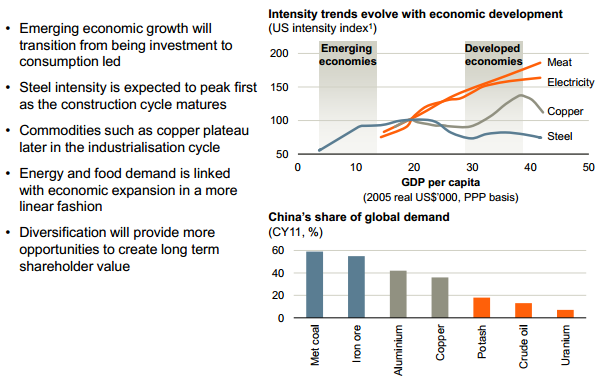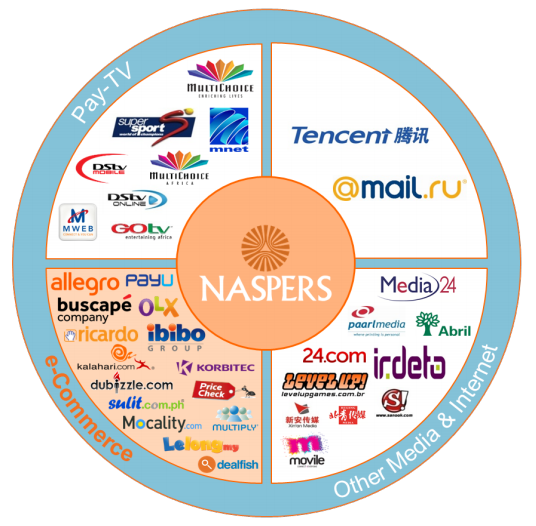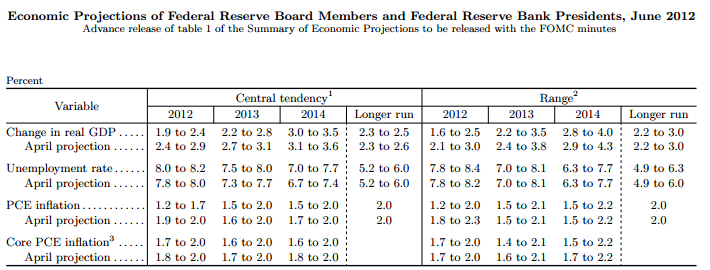Jozi, Jozi. 26o 12' 16" S, 28o 2' 44" E. We were slammed yesterday, there was little place to hide really, resource stocks once again weighed heavily on the overall index (the Jozi all share ended down 496 points to 33253), but the scoreboard also revealed that banks had taken a particularly hard knock. Down over two and one third of a percent on the day, it was pretty awful. The reasons around that? Well, Barclays got fined heavily (451 million Dollars) by both the UK and US authorities, and took a pasting in the British parliament (hear, hear!). All the other banks in the UK were hammered too. In addition to that, the JP Morgan scandal over losses associated with (poor) hedges associated with derivatives positions, has just gotten a whole lot bigger than the 2 billion Dollars that we were led to believe. Losses are expected to be larger than that, perhaps as much as 9 billion Dollars, but the current guesstimate is about 6 billion Dollars. Which is a large sum of money.
Again, there are calls for the heads of both Jamie Dimon and Bob Diamond, and someone needs to take the blame. Did you see the email trail from the Libor dealers involved in the manipulation? The whole "Big boy" line kills me really, that is crazy. Big banks are clearly under pressure globally, and shareholders in the US are starting to get vocal too, suggesting that full value would be revealed if there was a breakup of the institutions, that would serve everyone better is the thinking. Smaller and more nimble institutions, and government would be less worried about the whole idea of having to backstop banks. Although, the savings and loans crisis of around two decades ago, when roughly one in four "building societies" failed in the US. And when we are talking one in four, we are talking about 747 out of 3234 institutions, so smaller and more choices is not always better. And this crisis was directly linked to the real estate market falling over, the same as the last crisis. The solution? I do not think that there is one, but the notion that the gains in banking are privatised and the losses socialised, I am not quite sure that holds true. Ask the equity holders of Bank of America before and after TARP. They will tell you otherwise.
Telling us otherwise overnight were the keepers to the keys to Europe and their Euro project, which we have always maintained is just fine and intact. Sure there is a serious crisis in Europe, but that should help speed up the process of full integration. We sort of went a step closer last evening, and perhaps there was a sense from the Germans that too much austerity is not exactly helping in the short term. Maybe the thought was that there was nothing that was going to come out of the summit, and the fact that we got something is helping markets and European periphery yields this morning. And the Euro too. So what actually came out of this summit? Well the thought was that the money loaned to Spain, to then loan to their banks, would assume seniority to existing Spanish debt, well that notion has been set aside, because the funds are going directly to Spanish banks. The ESM is then the go to institution for capitalising European banks. And there would be a European banking supervisor, rather than each country having one. Good. Sounds like progress to me.
This came through from the official release on the European website: "But not only we have taken this very important decision on the euro area level but also there are other measures that are now possible in terms of short term stabilization for some countries that are now feeling special pressure and there is concrete reference here to the case of Spain. A memorandum of understanding that we hope that will be now concluded as a matter of urgency for the financial support for the recapitalization of the Spanish banking sector with an important decision that is that when the ESM becomes available, this financial assistance that is now going to be provided by the EFSF will be transferred to the ESM, without gaining seniority status. This was in fact one of the main points in terms of market confidence in this operation and also some other decisions that are possible for other countries that are fully complying with the country specific recommendations and also the European Semester, the Stability and Growth Pact and the Macroeconomic Imbalances Procedure."
Wow, loads of talk, but one gets the sense that they are getting things done slowly. After all, this is the 19th such meeting in 24 months, my wise crack was that they only need another 8 to go before they have reached the full 27. BUT, also giving us a big boost is an agreement around growth, 120 billion Euro package to create growth, which was not given the thumbs up until the short term issues were dealt with. In other words, the Italians were stonewalling the Germans (on the field too) on their growth plan, until the idea of heading in the direction of a banking union. First, banking union, then, a non austerity growth path, and then Euro bonds maybe, unlikely though.
Or maybe, never Euro bonds, who knows. Paul made a good point this morning suggesting that in time Europe could look like not so Great Britain, where the regions maintain their loyalty to a specific sporting team and heritage, but share the same economy. That would be the direction we are heading. Perhaps more an American type model. We will surely find out, but this seems a lot to me like heading towards MORE integration and not a falling or splitting apart of the zone. Take note once again, that whilst the process may seem slow and laborious, the Europeans get what needs to be done, well..... done eventually. Oh, and there was the small matter of super Mario Balotelli getting super Mario Monti to smile, and Angela Merkel to concede that they were not the better side on the day.
New York, New York. 40o 43' 0" N, 74o 0' 0" W. At face value it looked like a poor day for the markets, but the last hour saw a surge of over a percent. The Dow Jones and S&P 500 ended the session off around one fifth of a percent, down a percent and a third at one stage. The nerds of NASDAQ which were down two percent with an hour and a half to go, closed down 0.9 percent. So whilst it was a poor, horrible, no good day, it could have been a whole lot worse.
Byron's beats covers one of our stocks that reported afterhours, and I am sorry to say that the news is not that good.
- They really are brutal when it comes to earnings misses in the US. They don't have a trading update system like we do here but I guess they do release results quarterly compared to our 6 month releases. But any surprise normally brings big share price movements be it up or down. After hours yesterday Nike released Q4 results which actually looked good but missed expectations. The stock was down 12% in after market trade. Ouch. Let's delve into the numbers.
For the quarter, revenues were up 12% to $6.5bn, the biggest quarter in Nikes history. Earnings per share were down 6% from last quarter to $1.17. Expectations were for $1.37, this is why the share has dropped so much. We will deal with the reasons later. For the fiscal year, revenues came in at $24.1bn while earnings for the year equated to $4.73. That puts Nike on a high historic valuation of around 20. Gross margins for the year declined 150 basis points to a still very healthy 42.8%.
So why did we have this earnings miss? It looks like most of the criticism came from margins being crimped. I feel like I have seen this before. Last year the Amazon share price plummeted when margins were cramped because the company was looking further ahead than just quarterly results and were investing heavily. The Amazon price is now well above those levels.
The same thing has happened at Nike. This has been a big year for sporting events with the Euro football and the Olympics. This requires huge marketing costs. Demand creation expenses increased 23% to $760 million driven by these marketing requirements. Unfortunately neither Spain nor Italy are sponsored by Nike. Regardless, these expenses will take effect this last fiscal year but the sales will be felt in the following year.
There was also a slowdown in China for the quarter but still an 18% growth in the region for the year. Again, a clear indication that this last quarter was tough for everyone. On top of these issues Nike have had a big year in terms of innovation which of course requires capital expenditure. This includes new apparel, footwear and tech offerings. All this new apparel has also resulted in a big inventory expansion which also hampers margins.
In terms of prospects this from their release. "Fiscal year 2012 demonstrated NIKE, Inc.s greatest strength - innovation. We delivered an amazing number of game-changing products and services that drove record revenue growth," said Mark Parker, President and CEO, NIKE, Inc. "We also delivered solid profit growth for the year despite some headwinds in a challenging global economy, which will continue into the next year. That said, NIKE is well positioned to remain aggressive, flexible and laser-focused on the high-growth opportunities. That's how we continue to deliver long-term profitable growth for our shareholders."
We continue to like the theme and the company who are at the forefront of sport apparel. Sport gets bigger and bigger as it satisfies our natural competitive instincts while we try and embrace a healthier lifestyle. This is true for developing markets too. We will use this drop in share price as a big buying opportunity.
Some fellow on the box made me laugh, but it really was no laughing matter. When asked how the future looked for Research in Motion, he said "it is grim". Without skipping a beat, but he was right, the future for RIM looks pretty bleak. Last night the maker of the iconic Blackberry announced that they were cutting 5000 jobs and that they had made a loss. And that they were delaying the release of the Blackberry 10. 30 percent of the workforce are going to be without a job and the new phone that was supposed to rival all the cool models we see now is not going to happen in the foreseeable future.
Ahhh, nuts. As of close of business last evening, RIMM had a market cap of 4.8 billion Dollars. Minus fifteen percent in the aftermarket (down -15.12 percent actually to 7.75 Dollars), the stock is getting crushed, that comes to just more than 4 billion Dollars market cap. And that puts the Microsoft purchase of Yammer into perspective, just a few days ago, of 1.2 billion Dollars. No buyers here yet. I feel sorry for the stockholders, sorry for the employees, I guess the consumer just found a more awesome phone, from Samsung and Apple. Nokia staffers know their pain. So where does this all end up? Perhaps like Palm, someone will eventually pony up some money to buy parts. Time to get a new phone? I think not yet.
Currencies and commodities corner. Dr. Copper is last at 342 US cents per pound, higher than yesterday, that is for sure. The gold price is also higher at 1569 Dollars per fine ounce, the platinum price has also joined in the rally, up at 1408 Dollars per fine ounce. The oil price is also higher at 79.89 Dollars per barrel. The Rand is much stronger as it is risk on folks, the Europeans have saved the day. Again. Well, Buffon saved Italy, and at least the Europeans were not buffoons. The Rand is last at 8.25 to the US Dollar, 12.87 to the Pound Sterling and 10.39 to the Euro. Perhaps we would be better today than Europe is, if it were not for the strengthening Rand. But, the firmer Rand is good for all of us, or most of us I guess.
Sasha Naryshkine and Byron Lotter
Follow Sasha and Byron on Twitter
011 022 5440



